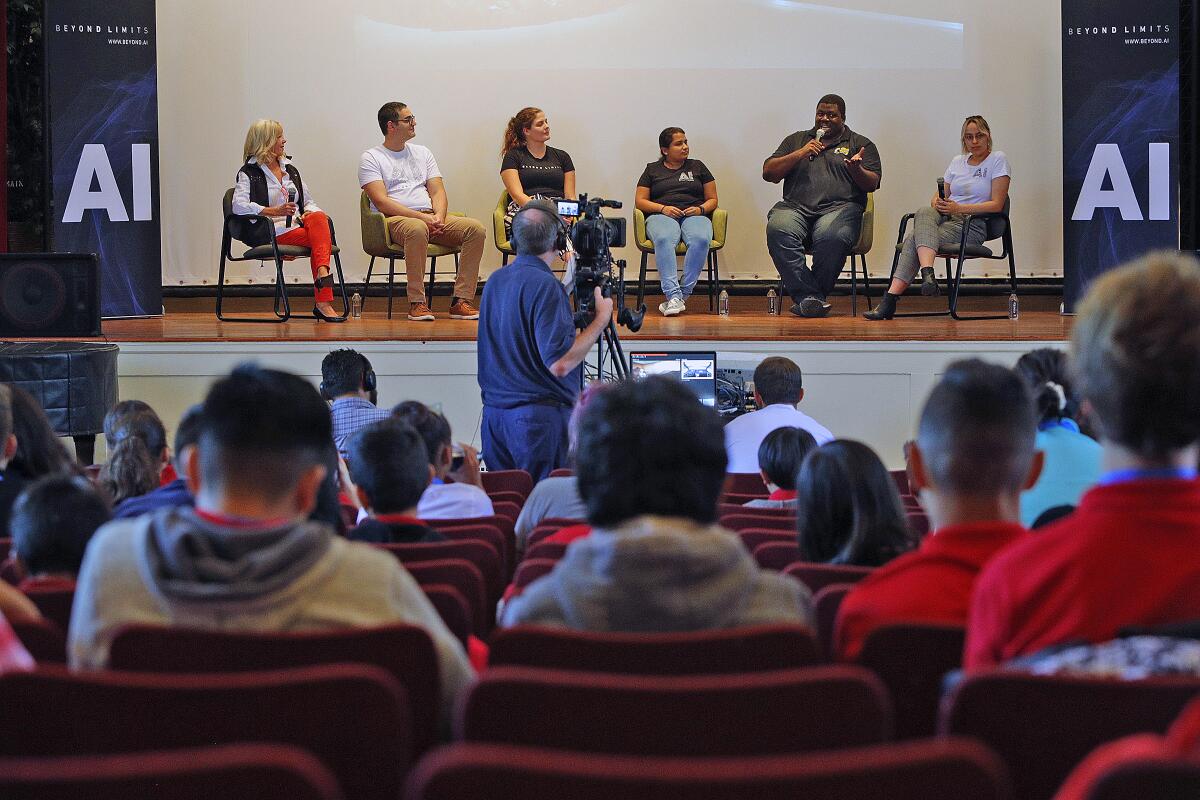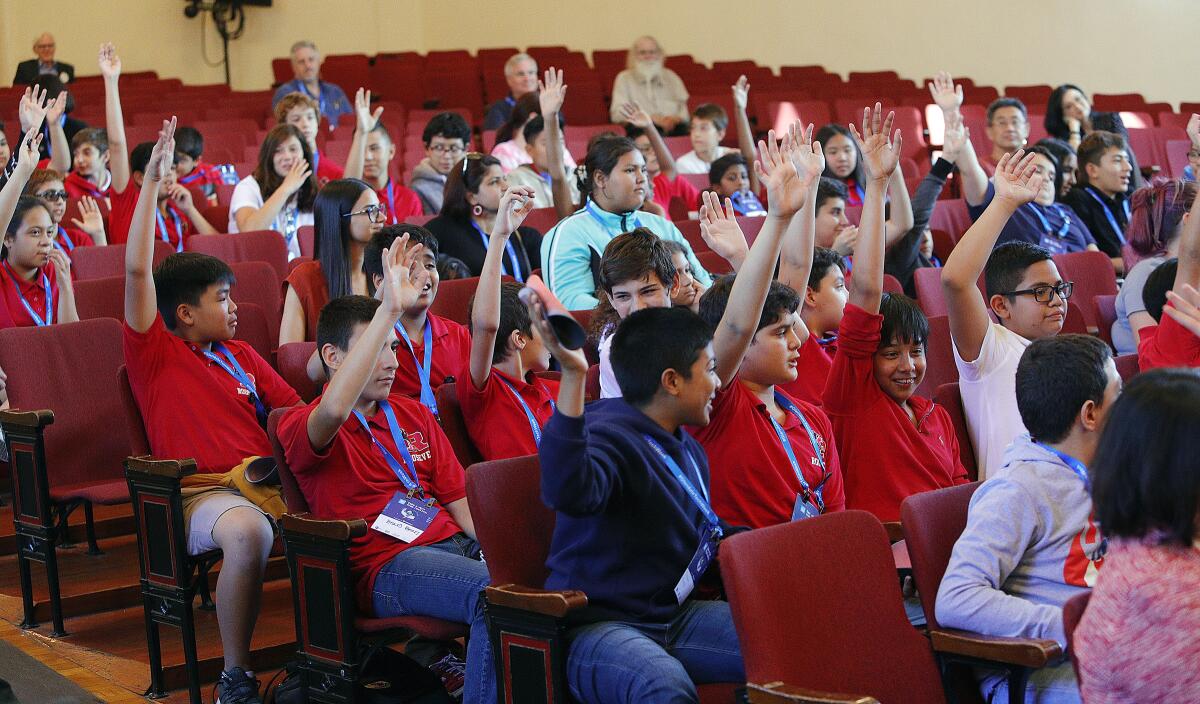Roosevelt students learn AI is less about killer robots and more about identifying fruits

- Share via
While the phrase artificial intelligence may conjure up images of killer machines like those in the movies “The Terminator” and “2001: A Space Odyssey,” the reality is a far cry from fiction and a lot more human-friendly.
Students at Roosevelt Middle School on Monday got a crash course about the reality of artificial intelligence, thanks to a panel discussion led by employees from Beyond Limits, a Glendale-based company that specializes in the technology.
Laura Marsh, a Beyond Limits software engineer, said one of the goals of artificial intelligence is be able to help people and companies be more efficient while working to be able to automate menial tasks.
“Our goal of incorporating AI technologies is not to take over the world,” she said. “We don’t want to program robots to completely wipe out the human race or doing anything crazy like that.”
One type of common artificial intelligence is machine learning, where a computer or program is given a large chunk of data, and it learns to analyze any patterns that are present.
Nicole Thompsons, a Beyond Limits data scientist, said an example of machine learning in action would be teaching a program how to tell the difference between an apple and orange without offering any prior information about the fruits.
The program would be fed hundreds of photos of the two fruits and, as it sorts through them all, the program will start to recognize the different shapes, textures and colors of the fruits and group them accordingly.
“It’s taking all this data and allowing the computer to come to its own conclusion and recognize patterns on its own,” Thompsons said.

The discussion was part of the city’s fourth annual Tech Week, meant to showcase Glendale’s growing tech industry.
Kyle Bruich, Roosevelt’s principal, said that because the campus will soon be rebranded as a science, technology, engineering, arts and mathematics, or STEAM, academy, he wanted the school to be involved with the weeklong event.
“We wanted our students to experience the great tech culture that lives in our community and be inspired to become the next generation of tech leaders,” he said.
“Listening to the students’ questions [for the panelists], they were definitely engaged and are thinking about their futures.”
